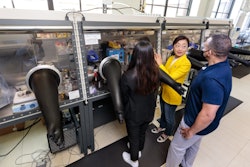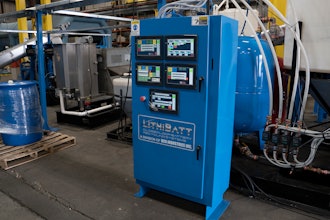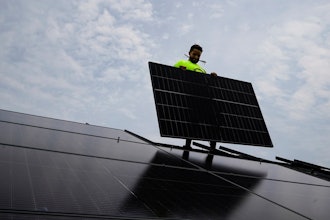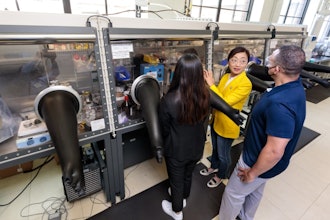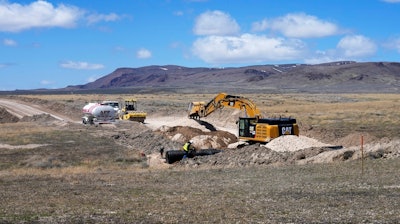
RENO, Nev. (AP) — President Joe Biden's administration has conditionally agreed to loan more than $2 billion to the company building a controversial lithium mine in Nevada with the largest known U.S. deposit of the metal critical to making batteries for electric vehicles key to his renewable energy agenda.
The U.S Energy Department agreed on Thursday to provide the $2.26 billion conditional loan to Canada-based Lithium Americas to help cover costs at its open pit mine deeper than the length of a football field near the Oregon line.
The loan would help finance a lithium carbonate processing plant at the Thacker Pass mine about 200 miles (322 kilometers) north of Reno — "the largest-proven lithium reserves in North America," DOE said in a statement.
"Thacker Pass is a treasure trove of lithium — key to strengthening U.S. energy security and electrifying America," Energy Secretary Jennifer Granholm said in a message posted Friday on X, formerly known as Twitter.
"By presenting this $2.26B conditional loan, we'll help level the global playing field and supercharge clean energy manufacturing nationwide," she said.
The Energy Department said the loan is contingent on its Loan Programs Office's review of the project under the National Environmental Policy Act.
Biden's renewable energy agenda aimed at easing U.S. reliance on fossil fuels so as to reduce greenhouse gas emissions is expected to be a key issue in his reelection bid against ex-President Donald Trump, who has said he would focus on drilling for more oil.
The department said lithium carbonate from Thacker Pass could support the production of batteries for up to 800,000 electric vehicles annually, avoiding the consumption of 317 million gallons (1.2 billion liters) of gasoline per year.
"Today's announcement reinforces the Biden-Harris Administration's whole-of-government approach to strengthening America's critical materials supply chain, which is essential to building America's clean transportation future and enhancing our national and energy security," DOE said Thursday.
Lithium Americas said the loan would cover the vast majority of the first phase of the Thacker Pass project, which is now estimated to cost $2.93 billion. Last January, General Motors Co. conditionally agreed to invest $650 million in the project.
The conditional commitment to the government's loan "is a significant milestone for Thacker Pass, which will help meet the growing domestic need for lithium chemicals and strengthen our nation's security," said Jonathan Evans, president and chief executive officer of Lithium Americas.
"The United States has an incredible opportunity to lead the next chapter of global electrification in a way that both strengthens our battery supply chains and ensures that the economic benefits are directed toward American workers, companies and communities," he said.
Environmental groups and leaders of three tribes spent nearly two years fighting the mine, which they say borders the sacred site of a massacre of more than two dozen Native Americans in 1865.
But a federal judge in Reno dismissed the latest challenges in December and the chairman of the Reno Sparks Indian Colony at the forefront of the legal battle said weeks later they were abandoning any future appeals.
The acting chairwoman of the Nevada tribe closest to the mine said her members support the project.
"Thacker Pass will provide important economic and employment opportunities for members of our Tribe," Larina Bell of the Fort McDermitt Paiute Shoshone Tribe said in a statement.
Lithium Americas said site preparation has been completed, including all site clearing, the commissioning of a water supply system, site access improvements and site infrastructure.
The company said the latest estimated total cost of phase one construction has been revised upward to $2.93 billion based on several factors, including the use of union labor for construction, updated equipment pricing and development of an all-inclusive housing facility for construction workers.
The company said it spent $193.7 million on the project during the year that ended Dec. 31. Mechanical completion of phase one is targeted for 2027 with full production anticipated sometime in 2028.





